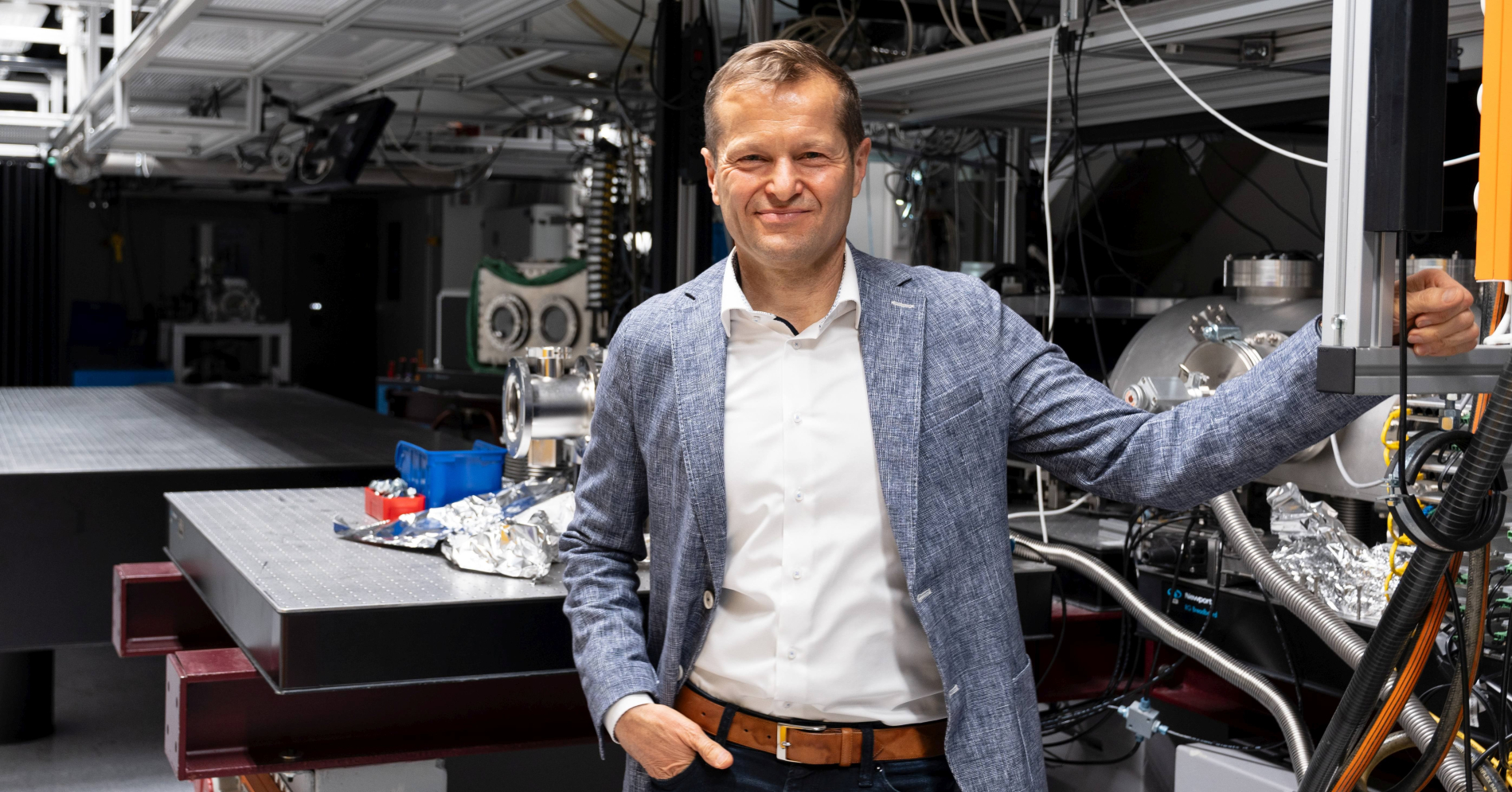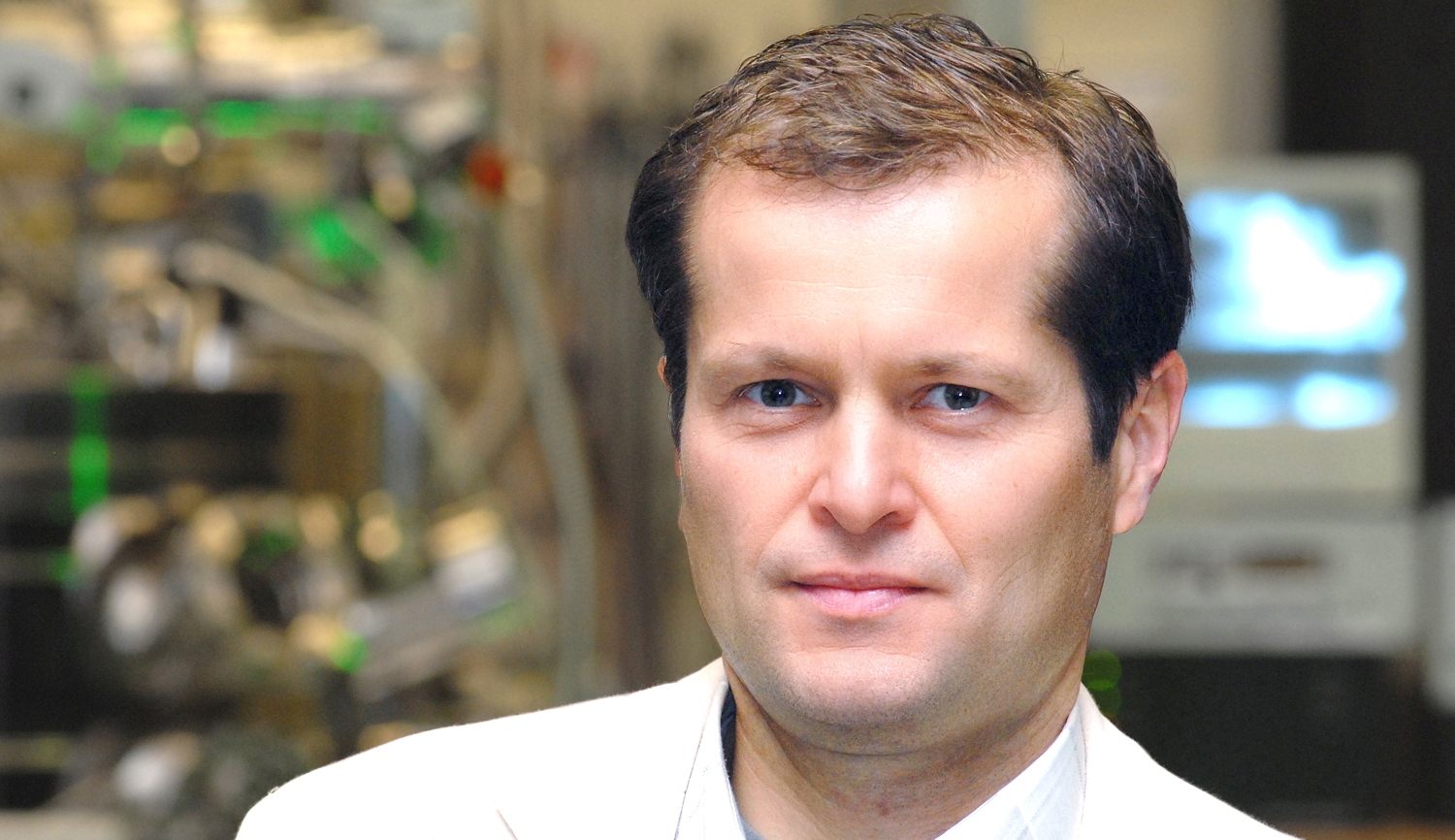YOUR BROWSER IS OUT-OF-DATE.
We have detected that you are using an outdated browser. Our service may not work properly for you. We recommend upgrading or switching to another browser.
Date: 31.10.2023

Prof. Ferenc Krausz - a world-renowned physicist and winner of this year's Nobel Prize in physics - came to Wroclaw Tech. The visit was related to the opening at the university of a research group cooperating with the scientist. The Nobel laureate gave an open lecture as part of the Interdisciplinary Science Seminar.
Prof. Ferenc Krausz is director of the Max Planck Institute for Quantum Optics in Munich. In October, together with Prof Anne L'Huillier and Prof Pierre Agostini, they were awarded the Nobel Prize in Physics. They were honoured for creating new tools to study the world of electrons inside atoms and molecules.
The visit of the scientist cooperating with our university is connected with the inauguration, scheduled for Tuesday, November 7, of a special research group specializing in the construction of ultrafast lasers. Its head is Maciej Kowalczyk, PhD (Faculty of Electronics, Photonics and Microsystems), who collaborated with Prof. Krausz in Germany on a postdoctoral fellowship in 2020-22.
"We have been selected to participate in the prestigious Max Planck Partner Group program", explains Maciej Kowalczyk, PhD. " It is funded by the Max Planck Society, which will provide a grant of €100,000 for the group's activities at PWr", he adds.

Maciej Kowalczyk's research group will collaborate directly with the Max Planck Institute for Quantum Optics, which is headed by Prof. Dr. Kowalczyk.
- Our task will be to develop issues related to lasers that generate femtosecond laser pulses in the mid-infrared, says our scientist. - We will focus primarily on stabilizing these laser sources so that they can be used at the Max Planck Institute for Quantum Optics for spectroscopic studies of human blood samples in cancer diagnosis.
On the same day, the Hungarian scientist gave an open lecture at Wroclaw Tech on "Attosecond Science: From accelerating electronics to studying human health." The lecture focused on light pulses on the attosecond scale and their application in medicine.
The live broadcast of the lecture is available on YouTube.
Prof. Ferenc Krausz was the first in the world to generate and measure single pulses of light with a duration on the attosecond scale (one attosecond is 10 -18 s) and is considered the founder of so-called attosecond physics. This experiment makes it possible to observe the movement of electrons inside atoms, which in 2002 was recognized by the scientific journals Nature and Science as one of the most important achievements in science. The measurements have brought new insights into atomic and solid state physics. The scientist is conducting research to understand microscopic processes involving electrons, atoms and molecules.
Ferenc Krausz was born in Mór, Hungary, in 1962, and studied electrical engineering at Budapest University of Technology and theoretical physics at the University of Budapest. He received his doctorate in quantum electronics from Vienna University of Technology in 1991 and his habilitation two years later. Since 2003 he has been director of the Max Planck Institute for Quantum Optics in Munich, where he heads the Attosecond Physics Group, and since 2004 he has been head of the Department of Experimental Physics at Ludwig Maximilian University in Munich.
He is the recipient of many prestigious awards (including 2005 Leibniz Prize, 2006 "Quantum Electronics Award," IEEE Laser and Electro-Optics Society, 2006 British "Progress Medal," 2022 Wolf Prize, 2022 BBVA Frontiers of Knowledge Award).
He received the most important award on October 3, 2023. - Nobel Prize in Physics for experimental methods for generating attosecond pulses of light to study the dynamics of electrons in matter. After it was awarded, he declared that he would donate - through his foundation Science4People - the prize money to help Ukraine.
BREAKING NEWS
— The Nobel Prize (@NobelPrize) October 3, 2023
The Royal Swedish Academy of Sciences has decided to award the 2023 #NobelPrize in Physics to Pierre Agostini, Ferenc Krausz and Anne L’Huillier “for experimental methods that generate attosecond pulses of light for the study of electron dynamics in matter.” pic.twitter.com/6sPjl1FFzv
His group's current work involves the use of ultrashort laser pulses in biomedical research. Professor Krausz wants to use the technology to measure femto- and attosecond pulses to spectroscopically analyze blood samples and detect minute changes in their composition. He and his team are investigating whether these changes are specific enough to allow unambiguous diagnosis of diseases - preferably in the early stages. This marks a new era for attosecond physics, as it would be its first practical application and could have a direct impact on people's daily lives.
Our site uses cookies. By continuing to browse the site you agree to our use of cookies in accordance with current browser settings. You can change at any time.